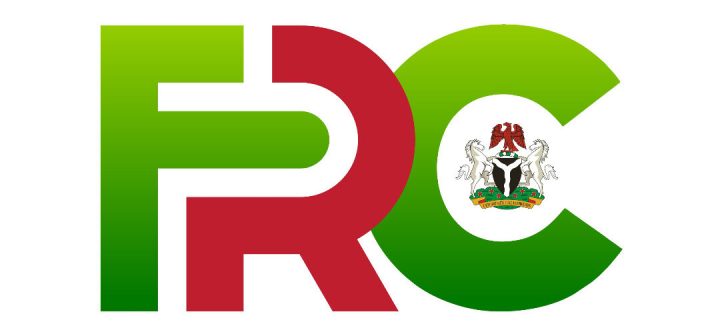Nigeria’s drive toward stronger corporate ethics and responsible governance received renewed momentum as the Financial Reporting Council (FRC) and the Securities and Exchange Commission (SEC) jointly championed the call for higher ethical standards in the private and public sectors. This took place during the 20th anniversary celebration of the Society for Corporate Governance Nigeria (SCGN) held in Lagos, which brought together leading regulators, corporate executives, and governance experts.
At the event, which marked two decades of SCGN’s influence in promoting corporate responsibility, both FRC and SEC reiterated the urgent need for organizations to strengthen their governance frameworks, enhance accountability, and promote transparency in all business dealings. The regulators emphasized that ethical corporate behavior remains the bedrock of sustainable economic development and investor confidence.

In his keynote address, the Executive Secretary and Chief Executive Officer of the FRC, Dr. Rabiu Olowo, commended SCGN for its long-standing commitment to advancing governance practices in Nigeria. He stressed that the Council’s focus has shifted beyond compliance reporting to ensuring that organizations integrate ethical leadership and sustainability principles into their core decision-making processes.
“Corporate governance is not about ticking boxes; it’s about building systems that reinforce trust,” Olowo stated. “At FRC, we are committed to creating a culture where organizations voluntarily embrace ethics, accountability, and sustainability—not because they are forced to, but because it is the right thing to do.”
Similarly, SEC’s Director-General, Dr. Emomotimi Agama, underscored the regulator’s position that robust governance structures and transparent reporting are indispensable for deepening investor confidence in Nigeria’s capital markets. He pointed out that global investors increasingly demand that listed companies demonstrate environmental, social, and governance (ESG) compliance as a key factor in investment decisions.
Agama further called for improved board oversight, whistleblower protection, and periodic evaluation of governance practices, saying that weak ethical foundations in corporate management often lead to reputational damage and financial instability. “To build an economy that competes globally, governance must be treated as a strategic asset, not a regulatory burden,” he added.
The SCGN’s Chairman, Mr. Muhammad Ahmad, used the milestone anniversary to reflect on the organization’s journey, noting that the Society has evolved into a key voice in shaping Nigeria’s corporate governance landscape. He highlighted SCGN’s role in policy advocacy, board development training, and ethical awareness across various industries.
According to Ahmad, SCGN has collaborated with international organizations, including the International Finance Corporation (IFC) and the Institute of Directors (IoD), to drive reforms that align Nigerian corporate practices with global standards. “Over the last two decades, we have trained hundreds of directors and governance professionals. Our goal is to ensure that ethics, transparency, and accountability remain at the heart of every boardroom decision,” he said.
Panel discussions during the event focused on topics such as “Corporate Governance in the Age of Technology,” “Ethics and Sustainability in Business Leadership,” and “The Future of Board Effectiveness in Nigeria.” Experts from diverse sectors—including banking, oil and gas, telecommunications, and manufacturing—shared insights on how evolving global business realities demand adaptive governance structures.
One of the speakers, Mrs. Ibukun Awosika, former Chairman of First Bank of Nigeria, urged corporate leaders to model integrity, empathy, and transparency, arguing that the moral compass of top management directly shapes the behavior of their organizations. She emphasized that governance reforms will only be effective when leaders embody the values they promote.
Also speaking, Dr. Olayemi Cardoso, Governor of the Central Bank of Nigeria (CBN), represented by a senior official, reaffirmed the apex bank’s support for ethical banking supervision. He noted that CBN’s regulatory framework continues to prioritize sound risk management, board accountability, and ethical conduct among financial institutions. “Without good governance, no amount of monetary or fiscal reform can deliver stability,” he remarked.
Participants at the anniversary urged a stronger partnership between the public and private sectors to institutionalize ethical practices and reduce corruption risks. They advocated for the enforcement of the Nigerian Code of Corporate Governance (NCCG) and better monitoring mechanisms to ensure compliance among companies.
The FRC boss also disclosed that the Council is reviewing sections of the NCCG to address emerging issues such as artificial intelligence, sustainability disclosures, and board diversity. He said the updated code will reflect new global standards and enhance Nigeria’s competitiveness in international markets.
The SEC, on its part, reiterated its ongoing initiatives to ensure that listed companies maintain transparency in disclosures, uphold investors’ rights, and adopt fair reporting standards. Agama noted that the Commission has introduced reforms to strengthen corporate accountability while encouraging innovation in capital market operations.
In recognition of SCGN’s impact over two decades, several stakeholders—including the Nigerian Exchange Group (NGX), Institute of Directors (IoD) Nigeria, and the Chartered Institute of Bankers of Nigeria (CIBN)—commended the organization for promoting responsible governance and contributing to Nigeria’s evolving business ethics framework.
As the event concluded, speakers emphasized that corporate governance reform is a continuous journey that requires consistent education, regulation, and leadership by example. They noted that Nigeria’s aspiration for a strong, inclusive, and resilient economy rests heavily on the integrity of its institutions and the ethical behavior of its business leaders.
In closing remarks, the SCGN leadership pledged to expand its advocacy efforts and capacity-building programs across Africa, ensuring that corporate governance principles remain a cornerstone of sustainable enterprise growth. The anniversary celebration ended with an awards session honoring individuals and organizations that have demonstrated exceptional commitment to ethical governance and professional integrity in Nigeria’s corporate space.
Support InfoStride News' Credible Journalism: Only credible journalism can guarantee a fair, accountable and transparent society, including democracy and government. It involves a lot of efforts and money. We need your support. Click here to Donate
